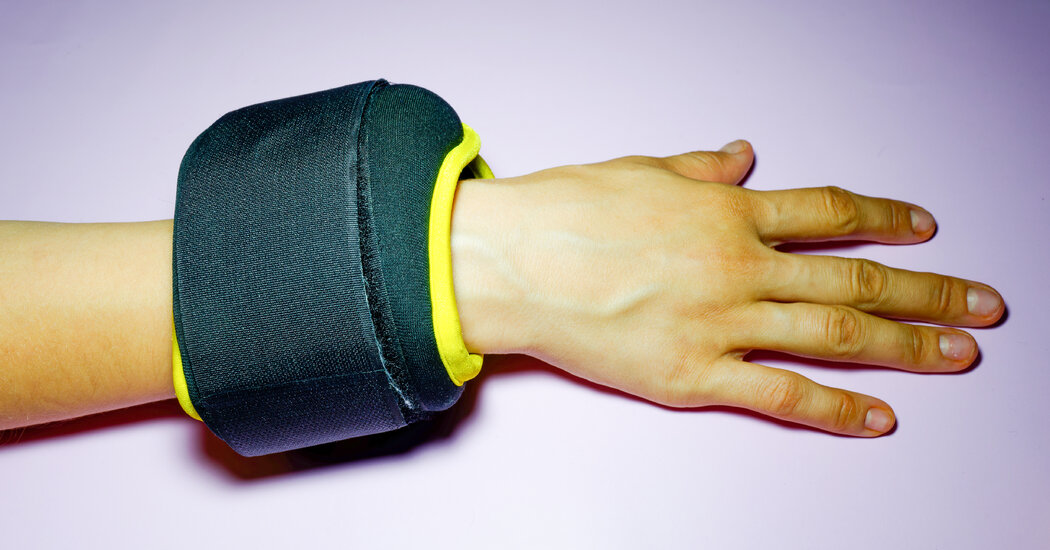We asked fitness experts what wearable weights, which are popular on TikTok, can really do for your health.
Wearable wrist weights, which once seemed relegated to the dustbin of fitness history, are seeing a resounding resurgence on social media.
The one- to three-pound cuffs first gained popularity during the fitness boom of the 1980s, when exercisers strapped on models made from fabric and filled with sand. But by the early 2000s, they had mostly gone the way of the leg warmer. It didn’t help that they absorbed sweat, which made them smell over time.
Their current resurrection has been fueled by brands like Bala, whose weighted “bangles” look like a fashion accessory: They are made from silicone-covered steel and come in muted colors that seem designed for TikTok and Instagram.
Like many at-home fitness brands, Bala’s business saw a boost during the pandemic. The company’s founders presented the bangles in a February 2020 episode of “Shark Tank.” A few weeks later, pandemic lockdowns took effect, and suddenly, “everyone needed toilet paper and workout equipment,” said Natalie Holloway, Bala’s co-founder.
Before long, other versions, with a similar aesthetic and silicone design, appeared on Amazon and retail store shelves.
In recent years, fitness personalities and social media influencers have promoted the benefits of wrist weights. Beyond Bala, a variety of other styles exist, including sweat-wicking options from Nike and leather wraps from the workout mogul Tracy Anderson.
